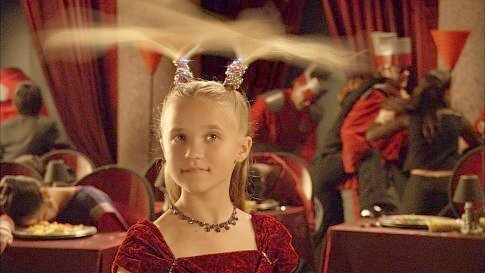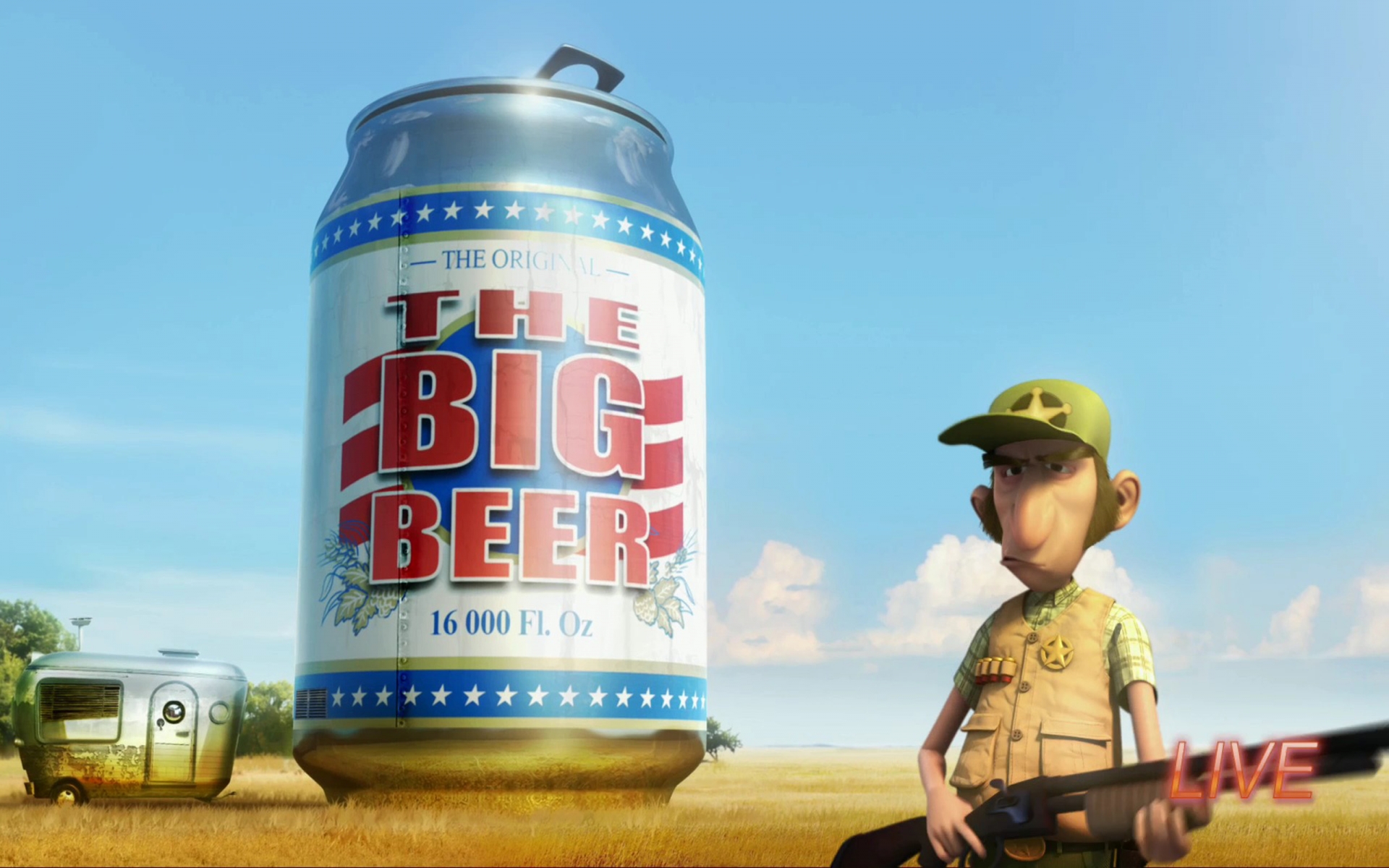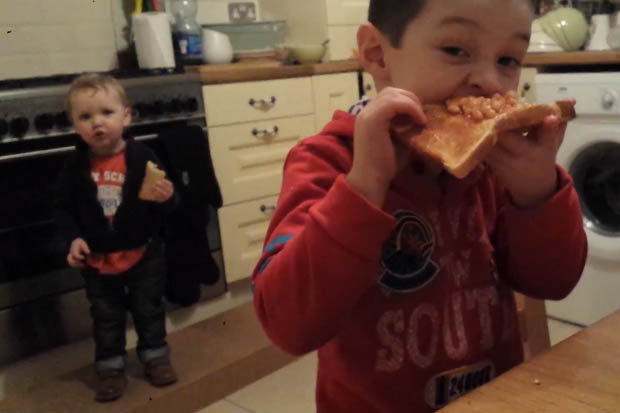Source:- Google.com.pk
Comedy (from the Greek: κωμῳδία, kōmōidía), in the contemporary meaning of the term, is any discourse or work generally intended to be humorous or to amuse by inducing laughter, especially in theatre, television, film and stand-up comedy. This sense of the term must be carefully distinguished from its academic one, namely the comic theatre, whose Western origins are found in Ancient Greece. In the Athenian democracy, the public opinion of voters was influenced by the political satire performed by the comic poets at the theaters. The theatrical genre can be simply described as a dramatic performance which pits two societies against each other in an amusing agon or conflict. Northrop Frye famously depicted these two opposing sides as a "Society of Youth" and a "Society of the Old", but this dichotomy is seldom described as an entirely satisfactory explanation. A later view characterizes the essential agon of comedy as a struggle between a relatively powerless youth and the societal conventions that pose obstacles to his hopes. In this struggle, the youth is understood to be constrained by his lack of social authority, and is left with little choice but to take recourse in ruses which engender very dramatic irony which provokes laughter.
Satire and political satire use ironic comedy to portray persons or social institutions as ridiculous or corrupt, thus alienating their audience from the object of humor. Satire is a type of comedy. Parody subverts popular genres and forms, using certain ironic changes to critique those forms from within (though not necessarily in a condemning way). Screwball comedy derives its humor largely from bizarre, surprising (and improbable) situations or characters. Black comedy is defined by dark humor that makes light of so-called dark or evil elements in human nature. Similarly scatological humor, sexual humor, and race humor create comedy by violating social conventions or taboos in comic ways. A comedy of manners typically takes as its subject a particular part of society (usually upper class society) and uses humor to parody or satirize the behavior and mannerisms of its members. Romantic comedy is a popular genre that depicts burgeoning romance in humorous terms and focuses on the foibles of those who are falling in love.
The word "comedy" is derived from the Classical Greek κωμῳδία kōmōidía, which is a compound either of κῶμος kômos (revel) or κώμη kṓmē (village) and ᾠδή ōidḗ (singing); it is possible that κῶμος itself is derived from κώμη, and originally meant a village revel. The adjective "comic" (Greek κωμικός kōmikós), which strictly means that which relates to comedy is, in modern usage, generally confined to the sense of "laughter-provoking". Of this, the word came into modern usage through the Latin comoedia and Italian commedia and has, over time, passed through various shades of meaning.
Greeks and Romans confined the word "comedy" to descriptions of stage-plays with happy endings. Aristotle defined comedy as an imitation of men worse than the average; worse, however, not as regards any and every sort of fault, but only as regards one particular kind, the Ridiculous, which is a species of the Ugly. The Ridiculous may be defined as a mistake or deformity not productive of pain or harm to others; the mask, for instance, that excites laughter, is something ugly and distorted without causing pain.[6] In the Middle Ages, the term expanded to include narrative poems with happy endings and a lighter tone. In this sense Dante used the term in the title of his poem, La Commedia. As time progressed, the word came more and more to be associated with any sort of performance intended to cause laughter. During the Middle Ages, the term "comedy" became synonymous with satire, and later humour in general, after Aristotle's Poetics was translated into Arabic in the medieval Islamic world, where it was elaborated upon by Arabic writers and Islamic philosophers, such as Abu Bischr, his pupil Al-Farabi, Avicenna, and Averroes. Due to cultural differences, they disassociated comedy from Greek dramatic representation and instead identified it with Arabic poetic themes and forms, such as hija (satirical poetry). They viewed comedy as simply the "art of reprehension", and made no reference to light and cheerful events, or troublous beginnings and happy endings, associated with classical Greek comedy.
After the Latin translations of the 12th century, the term "comedy" thus gained a more general semantic meaning in medieval literature.
In the late 20th century, emerged among scholars the tendency to pragmatically prefer the term laughter to comprehensively refer to the whole gamut of the comic, to avoid the classification in ambiguous and problematically defined genres and fields like humour, grotesque, irony, and satire.
Starting from 425 BCE, Aristophanes, a comic playwright and satirical author of the Ancient Greek Theater wrote 40 comedies, 11 of which survive and are still being performed. Aristophanes developed his type of comedy from the earlier satyr plays, which were shamelessly obscene. Of the satyr plays the only surviving examples are by Euripides which are not representative of the genre. In ancient Greece, comedy originated in bawdy and ribald songs or recitations apropos of phallic processions and fertility festivals or gatherings.
Around 335 BCE, philosopher Aristotle, in his work Poetics, stated that comedy originated in Phallic processions and the light treatment of the otherwise base and ugly. He also adds that the origins of comedy are obscure because it was not treated seriously from its inception.[13] That said, comedy had its own Muse: Thalia.
Aristotle taught that comedy is a good thing. It brings forth happiness, which for Aristotle is the ideal state, the final goal in any activity. He does believe that we humans feel pleasure oftentimes by doing the wrong thing, but he does not necessarily believe that comedy and humor is the wrong thing. It is also not true for Aristotle that a comedy must involve sexual humor to qualify as a comedy. A comedy is about the fortunate arise of a sympathetic character. A happy ending is all that is required in his opinion. Comedy may be divided into these three categories or sub-genres for Aristotle : farce, romantic comedy, and satire comedy. On the contrary, the Greek Philosopher Plato taught that comedy is a destruction to the self. He believed it produces an emotion that overrides rational self-control and learning. In The Republic (Plato), he says that the Guardians of the state should avoid laughter, " 'for ordinarily when one abandons himself to violent laughter, his condition provokes a violent reaction.' " Plato says comedy should be tightly controlled if one wants to achieve the ideal state.
Also in Poetics, Aristotle defined Comedy as one of the original four genres of literature. The other three genres are tragedy, epic poetry, and lyric poetry. Literature in general is defined by Aristotle as a mimesis, or imitation of life. Comedy is the third form of literature, being the most divorced from a true mimesis. Tragedy is the truest mimesis, followed by epic poetry, comedy and lyric poetry. The genre of comedy is defined by a certain pattern according to Aristotle's definition. Comedies begin with low or base characters seeking insignificant aims, and end with some accomplishment of the aims which either lightens the initial baseness or reveals the insignificance of the aims. A modern application of this theory would be the story the "ugly" guy who goes about things the wrong way, but in the end wins the "pretty" girl. Comedies usually contain elements of the supernatural (typically magic). Comedy uses the unrealistic in order to portray the realistic. For the Greeks, all comedies should end happily, whereas all tragedies should end sadly.
After 200 BCE, in ancient Sanskrit drama, Bharata Muni's Natya Shastra defined humour (hāsyam) as one of the nine nava rasas, or principle rasas (emotional responses), which can be inspired in the audience by bhavas, the imitations of emotions that the actors perform. Each rasa was associated with a specific bhavas portrayed on stage. In the case of humour, it was associated with mirth (hasya).
"Comedy", in its Elizabethan usage, had a very different meaning from modern comedy. A Shakespearean comedy is one that has a happy ending, usually involving marriages between the unmarried characters, and a tone and style that is more light-hearted than Shakespeare's other plays.
The advent of cinema in the late 19th century, and later radio and television in the 20th century broadened the access of comedians to the general public. Charlie Chaplin, through silent film, became one of the best known faces on earth. The silent tradition lived on well in to the 20th century through mime artists like Marcel Marceau, and the physical comedy of artists like Rowan Atkinson as Mr Bean. The tradition of the circus clown also continued, with such as Bozo the Clown in the United States and Oleg Popov in Russia. Radio provided new possibilities - with Britain producing the influential Goon Show after the Second World War. American cinema has produced a great number of globally renowned comedy artists, from Laurel and Hardy, the Three Stooges, Abbott and Costello, Dean Martin and Jerry Lewis, as well as Bob Hope during the mid-20th century, to performers like George Carlin, Robin Williams, and Eddie Murphy at the end of the century. Hollywood attracted many international talents like Canadian comics Dan Aykroyd, Jim Carrey, and Mike Myers. Among the most successful non-Hollywood comics was Australian comedian Paul Hogan in character as Crocodile Dundee. Other centres of creative comic activity have been the cinema of Hong Kong, Bollywood, and French farce.
American television has also been an influential force in world comedy: with American series like M*A*S*H, Seinfeld and The Simpsons achieving large followings around the world. British television comedy also remains influential, with quintessential works including Fawlty Towers, Monty Python, Dad's Army, Blackadder, and The Office. Australian satirist Barry Humphries, whose comic creations include the housewife and "gigastar" Dame Edna Everage, For his delivery of Dadaist and absurdist humour to millions, was described by biographer Anne Pender in 2010 as not only "the most significant theatrical figure of our time ... [but] the most significant comedian to emerge since Charlie Chaplin".
The phenomena connected with laughter and that which provokes it have been carefully investigated by psychologists. They agreed the predominant characteristics are incongruity or contrast in the object and shock or emotional seizure on the part of the subject. It has also been held that the feeling of superiority is an essential factor: thus Thomas Hobbes speaks of laughter as a "sudden glory". Modern investigators have paid much attention to the origin both of laughter and of smiling, as well as the development of the "play instinct" and its emotional expression.
George Meredith, Essay on Comedy, said that "One excellent test of the civilization of a country ... I take to be the flourishing of the Comic idea and Comedy; and the test of true Comedy is that it shall awaken thoughtful laughter." Laughter is said to be the cure to being sick. Studies show that people who laugh more often get sick less.
American literary theorist Kenneth Burke writes that the “comic frame” in rhetoric is “neither wholly euphemistic, nor wholly debunking—hence it provides the charitable attitude towards people that is required for purposes of persuasion and co-operation, but at the same time maintains our shrewdness concerning the simplicities of ‘cashing in.’” The purpose of the comic frame is to satirize a given circumstance and promote change by doing so. The comic frame makes fun of situations and people, while simultaneously provoking thought. The comic frame does not aim to vilify in its analysis, but rather, rebuke the stupidity and foolery of those involved in the circumstances.[20] For example, on The Daily Show, Jon Stewart uses the “comic frame” to intervene in political arguments, one such way is his sudden contrast of serious news with crude humor. In a segment on President Obama’s trip to China Stewart remarks on America’s debt to the Chinese government while also having a weak relationship with the country. After depicting this dismal situation, Stewart shifts to speak directly to President Obama, calling upon him to “shine that turd up.” For Stewart and his audience, introducing coarse language into what is otherwise a serious commentary on the state of foreign relations serves to frame the segment comically, creating a serious tone underlying the comedic agenda presented by Stewart.
Comedy Jokes for Kids That are Really Funny in English In Hindi To Tell In Urdu Knock Knock Tagalog
Comedy Jokes for Kids That are Really Funny in English In Hindi To Tell In Urdu Knock Knock Tagalog
Comedy Jokes for Kids That are Really Funny in English In Hindi To Tell In Urdu Knock Knock Tagalog
Comedy Jokes for Kids That are Really Funny in English In Hindi To Tell In Urdu Knock Knock Tagalog
Comedy Jokes for Kids That are Really Funny in English In Hindi To Tell In Urdu Knock Knock Tagalog
Comedy Jokes for Kids That are Really Funny in English In Hindi To Tell In Urdu Knock Knock Tagalog
Comedy Jokes for Kids That are Really Funny in English In Hindi To Tell In Urdu Knock Knock Tagalog
Comedy Jokes for Kids That are Really Funny in English In Hindi To Tell In Urdu Knock Knock Tagalog
Comedy Jokes for Kids That are Really Funny in English In Hindi To Tell In Urdu Knock Knock Tagalog
Comedy Jokes for Kids That are Really Funny in English In Hindi To Tell In Urdu Knock Knock Tagalog
Comedy Jokes for Kids That are Really Funny in English In Hindi To Tell In Urdu Knock Knock Tagalog
Comedy Jokes for Kids That are Really Funny in English In Hindi To Tell In Urdu Knock Knock Tagalog
Comedy Jokes for Kids That are Really Funny in English In Hindi To Tell In Urdu Knock Knock Tagalog
Comedy Jokes for Kids That are Really Funny in English In Hindi To Tell In Urdu Knock Knock Tagalog
Comedy Jokes for Kids That are Really Funny in English In Hindi To Tell In Urdu Knock Knock Tagalog
Comedy Jokes for Kids That are Really Funny in English In Hindi To Tell In Urdu Knock Knock Tagalog
Comedy Jokes for Kids That are Really Funny in English In Hindi To Tell In Urdu Knock Knock Tagalog















No comments:
Post a Comment